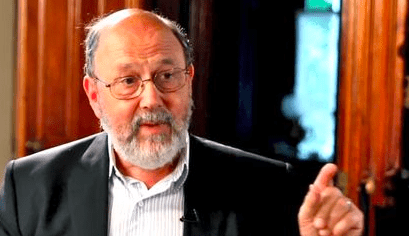 C.S. Lewis sketched “mere” Christianity in those famous radio talks after World War 2 and the literary deposit, Mere Christianity, has shaped the mind of many of us. Then along came John Stott who “evangelicalized” Lewis’ book in his book Basic Christianity. Then along came England’s third contributor to this basics discussion with Simply Christian, followed by Simply Jesus (filled out in his How God Became King) and now by Simply Good News. Of the three, I like the word “mere” best but Wright’s books have overpowered both Lewis and Stott because he has expanded those studies and set it all in a firmer historical orientation.
C.S. Lewis sketched “mere” Christianity in those famous radio talks after World War 2 and the literary deposit, Mere Christianity, has shaped the mind of many of us. Then along came John Stott who “evangelicalized” Lewis’ book in his book Basic Christianity. Then along came England’s third contributor to this basics discussion with Simply Christian, followed by Simply Jesus (filled out in his How God Became King) and now by Simply Good News. Of the three, I like the word “mere” best but Wright’s books have overpowered both Lewis and Stott because he has expanded those studies and set it all in a firmer historical orientation.
Now to Simply Good News, Wright’s recent contribution — yes, a study of the gospel. [Image credit] To repeat what I have said a number of times, most often in The King Jesus Gospel and also in Kingdom Conspiracy, many assume today they know what the gospel is but can be quite surprised when someone points them to a text like 2 Timothy 2:8 (“Remember Jesus Christ, who was raised from the dead and descended from David. This is my good news.”). Wright is pressing against the reduction of gospel in various contexts in our world today.
What is your response to the four elements of NT Wright’s “phenomenology of gospel” below?
N.T. Wright wants once again to remind us of the major contours of his previous studies on gospel and to make it more accessible than any of his other books. The most accessible study of gospel was his chapter in What Saint Paul Really Said. But here he begins at the beginning — with the meaning of the word and to see it as “news” in the sense of public news.
The Christian faith, in its earliest forms, is presented as good news. That is the original meaning of the Old English word gospel. I am arguing that the idea of seeing the Christian faith as news that is good is itself, ironically, news to many people today (2).
What he does in this book is a kind of phenomenology of gospel by breaking it into some important elements:
What good news regularly does, then, is [1] to put a new event into an old story, [2] point to a wonderful future hitherto out of reach, and so [3] introduce a new period in which, instead of living a hopeless life, [4] people are now waiting with excitement for what they know is on the way (4). [Numbers added.]
In many churches, the good news has subtly changed into good advice: here’s how to live, they say (4).
In other words, while some Christian teachers have exchanged good news for good advice, others [here is pointing at the soterian gospel crowd] have preserved the gospel as news, but they are telling a different story from what the New Testament authors meant by good news (5).
In this book Tom makes more accessible his gospel-against-the-empire theme. So he sketches Julius Caesar and his assassination, then the 13 yrs of civil war, then the duel between Octavian vs. Mark Antony and then the story of Octavian (Augustus) winning and the folks in Rome waiting two years before his return in triumph, and how Herod the Great accommodated himself to Augustus after having previously supported Mark Antony. In this section Tom is at his best.
Most importantly, now, Tom articulates the NT gospel in the context of the “gospel” of Rome. [The emphasis here, of course, is noticeable but one needs the OT and Jewish storied context as well and he does give some attention to that. The word “gospel,” after all, has not just a Roman/Greek setting but also a Jewish history and setting.]
Starting with Octavian, the Roman emperors regularly used the words good news to describe both what they had already achieved and what life would now like as a consequence. When the early Christians used this language, they used it in a similar way. Something had happened because of which everything was now different. Something would happen that would complete this initial victory (like Octavian returning to Rome and setting up his court). As a result, the present moment was new and different. This good news transformed people’s lives. It was bound to (12-13).
The opening chps in this book focus on Paul’s telling of the gospel and so to Paul we turn, and he opens with observations of what the gospel is not.
Despite Paul’s talk about God, he was not telling people about a new religious system. Nor was he urging them to adopt a new type of morality. He wasn’t offering them a new philosophy—a theory about the world, how it worked, how we could know things, how we should behave. Other teachers at the time were offering things like that, but Paul’s approach was different. True, his message would eventually affect those areas, too. But many people today assume that Christianity is one or more of these things—a religion, a moral system, a philosophy. In other words, they assume that Christianity is about advice.
But it wasn’t and isn’t.
Christianity is, simply, good news. It is the news that something has happened as a result of which the world is a different place (16).
NT Wright knows that we can sketch the gospel through a number of texts, and he begins with 1 Thessalonians 1:9-10 to get the ball rolling. Here it is in the CEB:
1Th. 2:9 You remember, brothers and sisters, our efforts and hard work. We preached God’s good news to you, while we worked night and day so we wouldn’t be a burden on any of you. 10 You and God are witnesses of how holy, just, and blameless we were toward you believers.
What does he find?
Paul had many ways of saying all this, but however you approached it, this was the heart of his message: an event involving Jesus and a revelation of the one true God. Something that had made the world a whole different place. Something because of which people were now faced with a challenge (like Herod faced with Octavian’s victory): If this is the new reality, where do you stand in relation to it? (19).
But to make the claim the gospel makes one must know the story that is at work leading to that gospel announcement:
Paul’s Bible was the Jewish Bible of the day, what Christians now call the Old Testament. Paul, like many Jews of the time, read this Bible as a single great story—but it was a story in search of an ending. It was about how God, who had created the world, called a single people, Israel, to be his people—but not for their own sake. He called them and made them special, so that through them he could rescue the world—the human race and the whole creation—from the appalling mess that had come about (24).
Wright and Middleton are on the identical page here in terms and categories: the gospel mission is the rescue and renewal of the cosmos. But many get it messed up right here: they get the wrong story going and then use Jesus to finish off their story.
Many people, including many Christians, assume a very different backstory. For some, it goes like this: What we need is life after death, but we’re not sure if t’s true or not. Now Jesus has been raised, so we know that there really is a life after death.
For others, it goes like this: We aren’t sure whether there is a God or not, or whether Jesus is divine— but he was raised from the dead, so there is a God, and Jesus is his son.
For others again, there is a darker note: We believe in heaven and hell, but how can we know which direction we’re heading? Answer: Jesus was raised, so all his people are going to heaven.
There are numerous variations. Such notions are not one hundred percent wrong, but they are caricatures and, as such, highly misleading if embraced as if they were the real thing. Notice what they miss out. In all of these, the word Messiah [Christ] functions as a proper name. For Paul, it really means “Messiah. This goes closely with the true backstory for the good news: the Messiah died and was raised “in accordance with the Bible” (25, reformatted).
He presses Paul deeper into his Roman empire context by observing how odd and scandalous this message was:
The reaction from his Jewish contemporaries was bad. But worse awaited him outside on the street. Paul’s good news, his royal announcement about Jesus, was nonsense at every level (28).
In essence, Paul’s gospel is a message about God, the God now made manifest in Jesus.
So what are we saying? Paul has taken biblical language about God and has applied it to the message about Jesus, knowing that in his hearers’ minds it will resonate with language they associate with Caesar. If we can get our minds around that idea, we will be veil on our way to understanding what he meant by the gospel (34).















